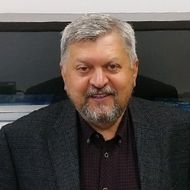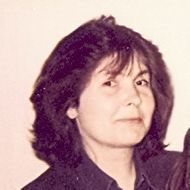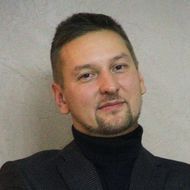- A
- A
- A
- ABC
- ABC
- ABC
- А
- А
- А
- А
- А
- HSE University
- Faculty of Economic Sciences
- Department of Statistics and Data Analysis
- News
- HSE the Only Russian University in ARWU Global Ranking in Sociology, Political Sciences, and Economics
-
Department
109028, Moscow,
Pokrovsky Boulevard 11, Rooms: S435, S424
Phone: +7 (495) 772-95-90*27039, 27038
Email: erichkova@hse.ru, ochikunaev@hse.ru
The Department of Statistics and Data Analysis, which is part of HSE’s Economics Faculty, brings together leading Russian and international specialists in the field of business statistics, macroeconomic statistics, stochastic analysis, actuarial mathematics and statistical methods for analysing economic and social processes.
Ajsmontas B., Alekhina S., Aleksandrova L. et al.
Springer, 2024.
In press
Chaudru de Raynal P., Jabir J. M., Menozzi S.
Stochastics and Partial Differential Equations: Analysis and Computations. 2024. P. 1-54.
Sinyavskaya O., Pishnyak A., Cherviakova A. A. et al.
In bk.: Inclusive education in the Russian Federation: Scoping International and Local Relevance. Springer, 2024. P. 139-167.
In press
Kelbert M., Moreno-Franco H. A.
math. arXiv. Cornell University, 2025
109028, Moscow,
Pokrovsky Boulevard 11, Rooms: S435, S424
Phone: +7 (495) 772-95-90*27039, 27038
Email: erichkova@hse.ru, ochikunaev@hse.ru

HSE the Only Russian University in ARWU Global Ranking in Sociology, Political Sciences, and Economics
HSE has entered the ShanghaiRanking's Academic Ranking of World Universities (ARWU) in four subjects and become the only Russian university in three of them (sociology, political sciences, and economics). HSE is among the world’s Top 75 universities in Sociology. This is the first time HSE has made it into the ARWU.
|
HSE in academic subjects |
Group |
|
51-75 | |
|
101-150 | |
|
101-150 | |
|
201-300 |
A total of 12 Russian universities have entered the ranking in academic subjects, including eight participants of Project 5-100.
‘ShanghaiRanking is a global ranking known for its strict university selection criteria, including objective and transparent indicators’, said Irina Karelina, HSE Director of Strategic Planning.
Ms. Karelina stressed that the fact that it included so many Russian universities is a breakthrough and a sign of the advances Russian education has made in the global academic environment and the international acknowledgement of academic results and educational products offered by Russian universities.
Rankings by subjects offer an unbiased assessment of a university’s progression in specific subject areas, and Russia’s universities are advancing in these terms, since Russian higher education has traditionally evolved on an industry-specific basis.
‘Rankings by subject are in demand among prospective students, and researchers around the globe, since they demonstrate specific universities’ progression in specific academic areas. According to surveys, over 60% of students use subject rather than institutional rankings when they choose a university’, Irina Karelina commented.
Comparing the approaches followed by different rankings Irina Karelina noted: ‘If we look at the names of subjects used by three global rankings, QS, THE, and ARWU, it may seem that they refer to one subject, Economics, but this is relative. The names of subjects vary and cover diverse areas of knowledge: Economics & Econometrics in QS, Economics and Business in THE, and Economics in ARWU. This means that the word ‘Economics’ is relevant to all of them, but they evaluate different publication databases. The three rankings by subject also apply different coefficients of bibliometric indicators: about 40% in QS, 30% in THE, and 75% in ARWU.
A university’s reputation in each subject area is the second component of the ranking. While in QS and THE it is based on academic community surveys, ARWU takes into account professors who have been awarded Nobel Prizes in economics while working at the university. THE also takes into account other indicators related to universities. HSE is a very young university and has had less time to nurture its own Nobel Prize winners. Nevertheless, Economics has been a priority area for HSE since its foundation, and it has already built up a good reputation in this subject area. That’s probably why HSE is already in the Top 100 in QS and THE, and is still 218th in ARWU’.
This year’s ranking includes 52 subjects in the natural sciences, engineering, humanities, and life sciences. A total of more than 1,400 of the world's best universities made the cut, out of 4,000 universities initially assessed.
- About
- About
- Key Figures & Facts
- Sustainability at HSE University
- Faculties & Departments
- International Partnerships
- Faculty & Staff
- HSE Buildings
- Public Enquiries
- Studies
- Admissions
- Programme Catalogue
- Undergraduate
- Graduate
- Exchange Programmes
- Summer Schools
- Semester in Moscow
- Business Internship
-
https://elearning.hse.ru/en/mooc/
Massive Open Online Courses
-
https://www.hse.ru/en/visual/
HSE Site for the Visually Impaired
-
http://5top100.com/
Russian Academic Excellence Project 5-100
- © HSE University 1993–2025 Contacts Copyright Privacy Policy Site Map
- Edit


